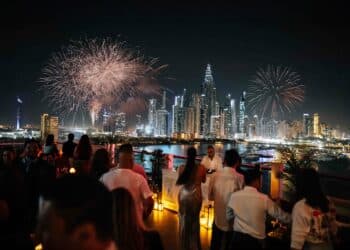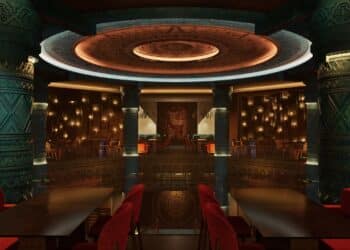Hotel News ME looks at the potential to roll out halal hotels and resorts across the Gulf region with a tailor-made offering that goes way beyond halal food and a non-alcohol environment. We look at Turkey as a case study where the Antalya region is home to more than 20 halal-friendly resorts, with facilities that include separate pools and beaches for women.
Halal tourism is a concept the Middle East’s hotel industry needs to get to grips with. Worth an estimated US$145 billion in 2014 with 108 million Muslim travellers representing 10% of the entire travel economy, it’s much more than a market niche. It fact its value is forecast to hit the $192 billion mark by 2020, with 150 million Muslim travellers representing 11% of the world travel community, according to the recent MasterCard CrescentRating Global Muslim Travel Index 2015(GMTI 2015).
The fast-paced growth of this ‘halal’ travel demographic has already been recognised in Asia where popular tourism destinations, many of which are home to a large Muslim population themselves, are developing well thought-out strategies to better target this market.
Malaysia, Indonesia and Thailand are not only making their tourism facilities and services more Muslim-friendly, but encouraging key industry players including hotels and restaurants to get on board and embrace the halal concept.

Yet in the Middle East, a burgeoning regional tourism hub that is also home to 3% of the world’s Muslim population, the travel industry is arguably somewhat reticent.
The terms ‘halal tourism’ and ‘halal hotels’ are often grossly misunderstood and the potential of this market as a high revenue-earner for the region’s hotel industry is gravely underestimated.
That’s the opinion of Ufuk Seçgin, chief marketing officer of HalalBooking.com, which has taken the halal travel market by storm with its online accommodation ‘search and book’ platform that meets fast-growing global demand for Muslim- and family-friendly holidays.
“Halal does not mean boring and it does not mean it’s a religious or spiritual holiday where you go to a camp to read the Quran,” he stresses. “A halal-friendly hotel is a fun hotel with extra facilities for ladies and children and a family entertainment programme. “Our customers are practicing Muslims that want to relax and enjoy themselves, but in compliance with their religious views.”
He says the term ‘halal’ can sometimes be misinterpreted leading to misconceptions amongst the hospitality and tourism communities that need to be overcome. “I actually prefer the terms halal-friendly, Muslim-friendly and family-friendly,” adds Seçgin.
What are halal holidays?
Since it was established in 2009, HalalBooking.com has been a trailblazer in educating both the trade and consumers about what ‘halal’ really means when it comes to holidays.
The London-headquartered halal holidays specialist, which has set itself the goal of becoming ‘the’ Bed-Bank of the halal tourism industry, offers a wide range of quality resort, city, thermal and private villa accommodation that adheres to Islamic principles.
The online travel agent (OTA) is already considered a world leader in the halal travel market, with the website available in six languages and serving customers in 70 countries across the globe.
Its top source markets include France, Germany, Belgium, Switzerland, The Netherlands, Scandinavia and Turkey.
“We also have many Arabic- and French-speaking customers from GCC and North African countries, particularly from Saudi Arabia, the UAE and Algeria,” says Seçgin. “Russia, home to 25 million Muslims, is a major source market for us too, as are the CIS countries.”
Halalbooking.com’s top-selling category is beach resorts because of the Muslim-friendly facilities they offer, which primarily cater to the needs of women and families.
Most have dedicated indoor and outdoor ladies’ pools and many offer ladies-only beaches where they can sunbathe and swim in the open sea with 100% privacy.
These beach resorts also have separate spa facilities saunas, Turkish hammams and steam rooms for men and women, plus children’s programmes.
“They take extra care to ensure resort entertainment is appropriate for families with young kids, which is desirable whether you are Muslim or non-Muslim,” explains Seçgin. “Our properties serve alcohol-free drinks and offer halal food.”
The majority of HalalBooking.com’s beach resorts are in Turkey, primarily in the Antalya and Alanya regions, where there are more than 24 halal-friendly resorts, four of which opened this year in time for summer.
“There is massive demand for this destination because it’s fun, there’s great food, there are Muslim-friendly facilities and the region has many natural and historical tourist attractions,” says Seçgin.

UAE potential
In fact around 70% to 75% of our HalalBooking.com’s business is to Turkey, which Seçgin refers to as “an example of best practice” for hotel investors and operators in other parts of the world looking to roll out a halal resort.
The OTA does offer one property in Egypt, the Porta Marina Resort & Spa on the North Coast, but globally, no other country understands or offers the halal holidays concept like Turkey, says Seçgin.
“We are just waiting for the day someone opens a halal resort in Sharm el Sheikh,” he says. “It’s a popular destination with good infrastructure, sunshine, plus it’s very affordable.” Seçgin is also a firm believer in the UAE’s natural propensity to offer halal resorts.
“It’s an all-year-round destination with great potential,” he says. “There are vast amounts of land available to build resorts tailored to the halal tourism industry, plenty of family attractions and unspoiled beaches, favourable weather, plus it’s well connected by air to the rest of the world,”
Home to 3% of the world’s Muslim population, the Middle East also has a captive halal audience on its doorstep, particularly given it accounts for 30% of the travel spend of that population, Seçgin notes.
“Big outbound markets like Saudi Arabia are lucrative and UAE destinations would get pay back quickly [if they built halal resorts],” he says.
Internationally, all of HalalBooking.com’s top customers markets, plus Asia’s large Muslim travel community would be attracted to the UAE as a halal destination, Seçgin continues.
“We have customers booking with us for the sixth year and have experienced all the top resorts in Turkey,” he says. “They are now asking for other destinations and when something’s in place in the UAE, we will sell it to them.
“There is lack of understanding in the GCC about halal products, but they are very well received and we sell them in millions.
“Hoteliers and investors in the Arab world would do well to look into this in more detail because there are lots of Muslim travellers who would appreciate this offering, but are often forced to compromise on their holiday plans.”
The business case
Seçgin says many of the Turkish resorts that have converted to the halal format are often not run by practicing Muslims, but shrewd business men and women who understand the market potential.
“There’s big demand, so why wouldn’t you do it?” he asks. “If you are a fast mover in the (Gulf) region and develop a chain, you’ll reap the rewards.”
He also notes the cost savings on all-inclusive packages, which are typical at Turkey’s halal resort.
“When alcohol is included, hotels can spend millions during the summer season,” he says. “Make one change and become a dry resort and you save all of that money, plus because of the high demand for halal resorts, you can charge more. The margins are significantly higher than for a comparable non-halal resort.”
One of Turkey’s most popular halal properties is Adenya Hotel & Resort, which is certified by the World Halal Union, due to its “unique concept” that “appeals to Muslim travellers”, says the property’s general coordinator, İlknur Tataroğlu.
“We have five swimming pools for women and three for men, plus one women-only beach that is totally private,” she explains. “All food served is halal and there is a strict no-alcohol policy.”
The resort also offers separate fitness centres, hammams and spas for men and women, plus a 480-square-metre masjid (mosque) and all female facilities are run by female staff, she adds. Tataroğlu says the property, which has 289 rooms, operates at 100% occupancy all year round. “And if we had another property, that would be full too,” she says. “We have many repeat guests.”
The main selling point, she reiterates, is the separate male and female facilities, as well as an all-inclusive offering, both of which the resort advertises heavily to ensure Muslim guests from around the world are aware of what Adenya Hotel & Resort has to offer.
“The halal tourism market is one of the fastest growing industries in the world and will continue to grow as the Muslim population’s size and spending power increase,” says Tataroğlu. “Halal hotels are being built to cater to this demand and we are even noticing how regular hotels and restaurants are adapting their model to become halal certified.”
UAE pioneers
While the UAE has some catching up to do by Turkish standards, a handful of savvy UAE-based hospitality firms are rolling out halal hotel concepts regionally. Shaza Hotels, R Hotels, HMH – Hospitality Management Holdings and TIME Hotels are amongst the major players in this field.
Shaza Hotels, a partnership with Kempinski Hotels, has a portfolio of nine hotels either in operation or under construction, with ambitious plans to double this number over the next two years, reveals the firm’s vice president – development, Chris Nader.
“We opened our first hotel in Al Madinah in 2010 and have four more openings in 2016 in Doha, Amman, Muscat and Makkah.
“All of our hotels offer the ‘basic requirements’ such as no alcohol, halal food and the Holy Quran, Qiblah and prayer mats in each room. We also offer prayer rooms, separate (leisure) facilities for men and women, and appropriate entertainment.”
“Authentic halal lifestyle experiences” are also reflected in hotel service ethics, which encompass “respect, privacy and warmth”, adds Nader.
Shaza’s first luxury resort is under construction in Salalah and is expected to open in 2017. It will include 50 villas with private pools on the beach, as well as separate spa and hammam facilities for men and women.
Meanwhile Sharia-compliant hospitality firm TIME Hotels recently announced plans to open its first resort in Hurghada, Egypt, which true to its roots, will “focus on the needs of the halal traveller”, says CEO Mohammed Awadalla.
“All of our properties and upcoming openings in Abu Dhabi, Dubai, Egypt and Qatar, are dry (no alcohol), we do not serve pork products and offer spa facilities with separate male and female sections.”
Awadalla says TIME’s efforts to “actively court the halal traveller” have paid dividends for the company, with owners and investors buying into the concept once they understand these “cultural demands” and their commercial value.
Echoing Seçgin’s sentiments, Awadalla says the development of dedicated halal resorts has the potential to “widen the attraction of a destination to Muslim travellers who want to enjoy all that a resort destination has to offer but with a 100% guarantee that the experience will be halal”.
“It will also position destinations as open and encouraging to all guests of all nationalities/religious beliefs, which can only send out a positive message for global tourism,” he adds.


































































